
- Subject:
- Applied Science
- Biology
- Life Science
- Material Type:
- Module
- Date Added:
- 07/10/2017

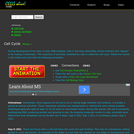
During development from stem to fully differentiated, cells in the body alternately divide (mitosis) and "appear" to be resting (interphase). This sequence of activities exhibited by cells is called the cell cycle. Watch this animation to learn more about each of the stages in the cell cycle: interphase, gap 0, gap 1, S Phase, gap 2, and M phase.

Students will learn about condoms as a form of contraception and STI prevention, as well as talk about safer sex strategies, communication, and how to reserach and access healthcare services and testing.

The lesson introduces students to various contraceptive methods used for pregnancy prevention. The lesson ends with a critical thinking exercise that asks students to figure out the best type of contraception for various teens in different situations.

This lesson reviews the basics of safer sex practices and contraception. It also introduces several laws in Oregon that revolve around consent, reproductive and sexual health access, medical consent, and more.
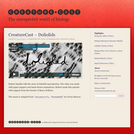
Robert Sandler tells the story of doliolid reproduction. The video was made with paper puppets and hand-drawn animations. Robert made this episode with support from the Society of Royce Fellows.
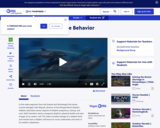
This video segment from the Science and Technology Chat series focuses on dolphin pregnancy, birth, and care of the young, and features Atlantic bottlenose dolphins living in captivity at the Mirage Resort Dolphin Habitat.

Introduction to the egg, sperm, and fertilization. Created in collaboration between the Association of American Medical Colleges and Khan Academy.
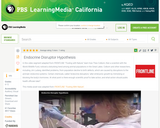
Scientists discuss whether or not endocrine disrupting chemicals, which may cause birth defects and other health concerns, should be controlled in the absence of conclusive proof, in this video segment adapted from FRONTLINE: Fooling with Nature.

Building on the Introduction to Healthy Relationships lesson by the same authors, this lesson expands students’ understanding of healthy relationships. Students will review what healthy relationships look and feel like. Students will focus on how to assess the health of their own romantic and platonic relationships. The lesson also expands on power dynamics, boundaries, and consent as appropriate for older high school students. After an in-depth, discussion-based presentation reviewing these concepts, students will apply an evaluation process to review the health of fictional relationships in small groups.

This course investigates theories and practices of feminist inquiry across a range of disciplines. Feminist research involves rethinking disciplinary assumptions and methodologies, developing new understandings of what counts as knowledge, seeking alternative ways of understanding the origins of problems/issues, formulating new ways of asking questions and redefining the relationship between subjects and objects of study.
What makes research distinctively feminist lies in the complex connections between epistemologies, methodologies and research methods. This course explores how these connections are formed in the traditional disciplines and raise questions about why they are inadequate and/or problematic for feminist inquiry and what, specifically, are the feminist critiques of these intersections.
This course is part of the Graduate Consortium in Women’s Studies at MIT.

How haploid gametes (sperm and egg cells) combine to form a diploid zygote with two sets of chromosomes. Created by Sal Khan.

In this lesson, students will deepen their understanding of gender expression through the use of anchor texts and a video. They will apply their understanding through a self-portrait that reflects an iteration of their gender expression.
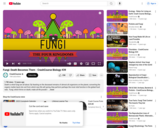
Death is what fungi are all about. By feasting on the deceased remains of almost all organisms on the planet, converting the organic matter back into soil from which new life will spring, they perform perhaps the most vital function in the global food web. Fungi, which thrive on death, make all life possible.
Chapters:
1) Biolography
2) Structure
3) The Decomposers
4) The Mutualists
5) The Predators
6) The Parasites
7) Reproduction
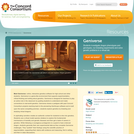
The Geniverse software is being developed as part of a five-year research project funded by the National Science Foundation. Still in its early stages, a Beta version of the software is currently being piloted in six schools throughout New England. We invite you to try the current Beta version, keeping in mind that you may encounter errors or pages that are not fully functional. If you encounter any problem, it may help to refresh or reload the web page.
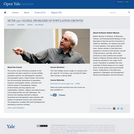
This survey course introduces students to the important and basic material on human fertility, population growth, the demographic transition and population policy. Topics include: the human and environmental dimensions of population pressure, demographic history, economic and cultural causes of demographic change, environmental carrying capacity and sustainability. Political, religious and ethical issues surrounding fertility are also addressed. The lectures and readings attempt to balance theoretical and demographic scale analyzes with studies of individual humans and communities. The perspective is global with both developed and developing countries included.

In this lesson, students will learn about and practice the fundamentals of healthy communication and boundary-setting in order to strengthen healthy relationship skills. Students will identify characteristics of healthy & unhealthy relationships.
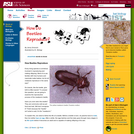
Every living thing must be able to reproduce and make offspring. Most of us are familiar with how humans and mammals make babies, but do all creatures reproduce in the same way? Do insects, like the beetle, give birth to little insects? Also in: French | Spanish
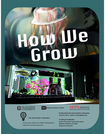
This lesson opens with students looking for evidence that growth is occurring in living organisms. Students will use a group of pictures of an animal at different stages of its life to find evidence of the changes that occur.
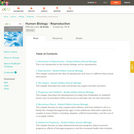
The Reproduction Student Edition book is one of ten volumes making up the Human Biology curriculum, an interdisciplinary and inquiry-based approach to the study of life science.